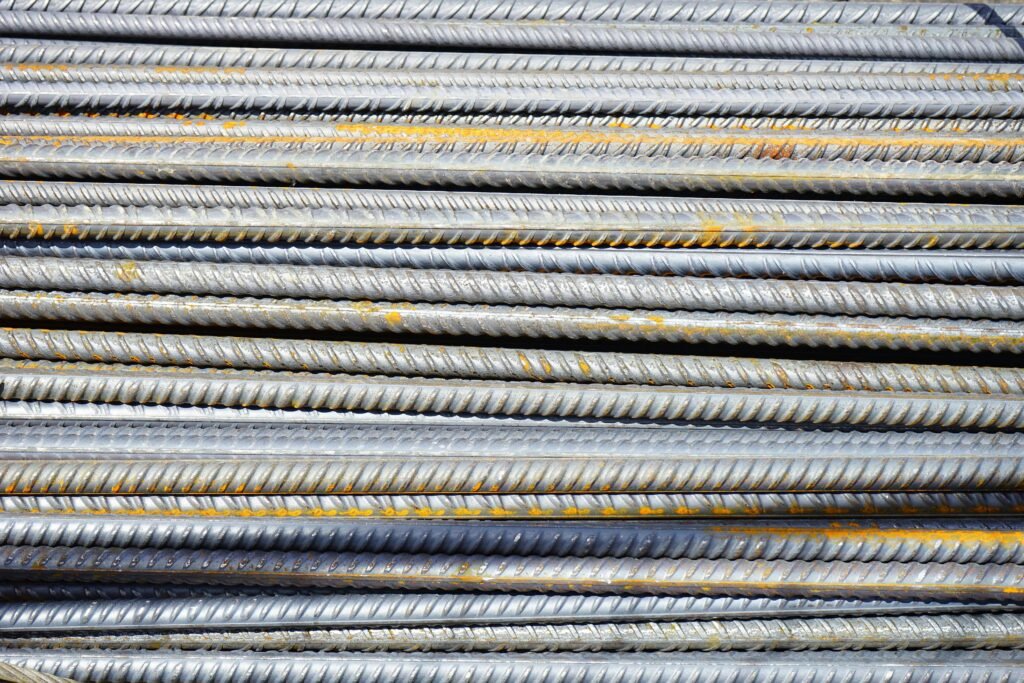Are you interested in embracing environmentally-friendly practices in construction? Look no further than Kenya, where eco-friendly construction materials and technologies are gaining popularity. From recycled building materials to renewable energy solutions, Kenya is leading the way in sustainable construction practices. With the use of green building certifications, water and energy efficient technologies, and sustainable waste management systems, construction in Kenya is becoming more environmentally conscious. By utilizing these eco-friendly materials and technologies, you can reduce your carbon footprint and contribute to a greener future. So why wait? Take the leap towards sustainable construction in Kenya and make a positive impact on the environment.

Recycled Building Materials
When constructing in Kenya, consider using recycled building materials to reduce waste and promote sustainability. The use of recycled building materials is an innovative approach that offers several benefits. Firstly, it helps to reduce the amount of waste generated during construction, minimizing the environmental impact. By reusing materials such as reclaimed wood, recycled concrete, and salvaged metal, you can significantly decrease the amount of waste sent to landfills. Additionally, utilizing recycled building materials is cost-effective, as they are often cheaper than brand new materials. This can lead to significant cost savings, especially for large-scale construction projects.
Innovation in the field of recycled building materials has resulted in the development of high-quality products that meet industry standards. For example, recycled concrete can be crushed and processed to create aggregates for use in new construction projects. This not only reduces the demand for natural resources but also reduces the carbon footprint associated with the production of new materials. Moreover, the use of recycled building materials can contribute to obtaining green certifications for your project, enhancing its overall sustainability profile.
Transitioning into the subsequent section about renewable energy solutions, it is important to note that incorporating recycled building materials is just one aspect of creating an eco-friendly construction project in Kenya.
Renewable Energy Solutions
To further enhance the sustainability of your construction project in Kenya, consider incorporating renewable energy solutions. By harnessing the power of the sun and wind, you can reduce your reliance on traditional energy sources and minimize your project’s carbon footprint. Here are four renewable energy solutions to consider:
- Solar Power: Installing solar panels on your building can generate clean and sustainable electricity. Kenya receives abundant sunshine throughout the year, making it an ideal location for solar power systems. With advancements in technology, solar panels have become more efficient and affordable, making them a practical choice for construction projects.
- Wind Turbines: Kenya’s coastal areas and highland regions experience strong and consistent winds, making wind turbines a viable option for generating electricity. By harnessing the power of wind, you can produce renewable energy and contribute to a greener future.
- Hybrid Systems: Combining solar power and wind turbines can provide a more reliable and consistent energy supply. Hybrid systems utilize both renewable sources to maximize energy production and minimize dependence on the grid.
- Energy Storage: Investing in energy storage solutions, such as batteries, allows you to store excess energy generated by solar panels or wind turbines for later use. This ensures a continuous power supply even during periods of low energy production.
Incorporating renewable energy solutions into your construction project not only reduces your environmental impact but also offers long-term cost savings through reduced energy bills. By utilizing solar power, wind turbines, and other renewable energy technologies, you can create a more sustainable and eco-friendly building.
Transition: Now that you have explored renewable energy solutions, let’s delve into the importance of obtaining green building certifications.
Green Building Certifications
While considering eco-friendly construction materials and technologies in Kenya, it is important to explore the benefits of obtaining green building certifications. These certifications validate that a building meets certain sustainability standards and promote the use of energy-efficient lighting solutions and eco-friendly insulation materials.
One of the key benefits of obtaining green building certifications is the reduction of energy consumption. Energy-efficient lighting solutions, such as LED bulbs, are a requirement for many green building certifications. These lighting solutions use significantly less energy compared to traditional bulbs, resulting in lower electricity bills and a reduced carbon footprint.
Another benefit is the use of eco-friendly insulation materials. Green building certifications often require the use of insulation materials that have a minimal impact on the environment. These materials are typically made from recycled or renewable resources, reducing the need for virgin materials and minimizing waste.
Obtaining a green building certification also enhances the market value of a building. With increased awareness and demand for sustainable buildings, certified buildings are more attractive to potential buyers and tenants. They are seen as environmentally responsible and can command higher rental rates or selling prices.
Water and Energy Efficient Technologies
Implementing water and energy efficient technologies is a key step towards sustainable construction practices in Kenya. By adopting these technologies, construction projects can significantly reduce their impact on the environment and contribute to the overall goal of achieving a greener and more sustainable future. Here are four water and energy efficient technologies that can be implemented in construction projects in Kenya:
- Smart irrigation systems: These systems use sensors and weather data to optimize water usage in landscaping and irrigation. By only watering when necessary and adjusting watering schedules based on weather conditions, smart irrigation systems can reduce water consumption by up to 50%.
- Energy efficient lighting: Switching to energy efficient lighting, such as LED bulbs, can significantly reduce energy consumption in buildings. LED bulbs use up to 75% less energy than traditional incandescent bulbs, while still providing the same level of brightness.
- Rainwater harvesting: Collecting and storing rainwater for non-potable uses, such as toilet flushing and irrigation, can help reduce reliance on freshwater sources. Rainwater harvesting systems can be integrated into the design of buildings, allowing for the collection and storage of rainwater for later use.
- Greywater recycling: Greywater refers to wastewater generated from domestic activities such as bathing, laundry, and dishwashing. By implementing greywater recycling systems, this water can be treated and reused for non-potable purposes, reducing the demand for freshwater.
Sustainable Waste Management Systems
You can further enhance sustainable construction practices in Kenya by implementing efficient waste management systems. Proper waste management is crucial for reducing the environmental impact of construction activities and promoting a circular economy. One effective method is through the use of composting techniques. Composting involves the decomposition of organic waste into nutrient-rich compost that can be used as a natural fertilizer for construction projects. By diverting organic waste from landfills and utilizing it in composting, construction companies can significantly reduce their carbon footprint and minimize the release of greenhouse gases.
Additionally, waste to energy solutions can be implemented to further improve sustainable waste management in the construction industry. These solutions involve converting non-recyclable waste materials into energy sources such as electricity or heat. By utilizing waste to energy technologies, construction companies can not only reduce the volume of waste going to landfills but also generate renewable energy that can be used to power construction sites or even contribute to the local grid.

Frequently Asked Questions
Are There Any Local Government Incentives or Tax Breaks for Using Eco-Friendly Construction Materials in Kenya?
Are there any local government incentives or tax breaks for using eco-friendly construction materials in Kenya? Yes, there are. The government encourages the use of such materials by providing incentives and tax breaks to promote sustainable construction practices.
What Are the Cost Implications of Using Renewable Energy Solutions in Construction Projects in Kenya?
Using renewable energy solutions in construction projects in Kenya can have significant cost benefits. The initial investment may be higher, but the long-term savings on energy bills and potential return on investment make it a financially wise decision.
How Can Developers or Homeowners Obtain Green Building Certifications in Kenya?
To obtain green building certifications in Kenya, developers or homeowners must overcome obstacles. Community engagement is crucial in sustainable construction projects, as it promotes awareness and support. Consider the importance of education and training in eco-friendly practices to achieve these certifications.
Are There Any Specific Water and Energy Efficient Technologies That Are More Suitable for the Kenyan Climate?
To address the specific needs of the Kenyan climate, there are energy efficient lighting options available, such as LED technology, which can significantly reduce energy consumption. Additionally, water saving fixtures can help conserve water resources.
What Are the Regulations and Guidelines for Implementing Sustainable Waste Management Systems in Construction Projects in Kenya?
To implement sustainable waste management systems in construction projects in Kenya, developers and homeowners must adhere to regulations and guidelines set by the local government. They can also take advantage of tax breaks and incentives for using eco-friendly construction materials and renewable energy solutions. Additionally, obtaining green building certifications can help ensure compliance with water and energy efficient technologies suitable for the Kenyan climate. However, it’s important to consider the cost implications of these initiatives.
Conclusion
In conclusion, the use of eco-friendly construction materials and technologies in Kenya holds great potential for sustainable development. By incorporating recycled building materials and adopting renewable energy solutions, the construction industry can significantly reduce its environmental impact. Additionally, obtaining green building certifications and implementing water and energy efficient technologies further promote sustainability. Moreover, sustainable waste management systems contribute to minimizing waste generation and promoting a circular economy. Overall, these practices contribute to a greener and more sustainable future for Kenya’s construction industry.